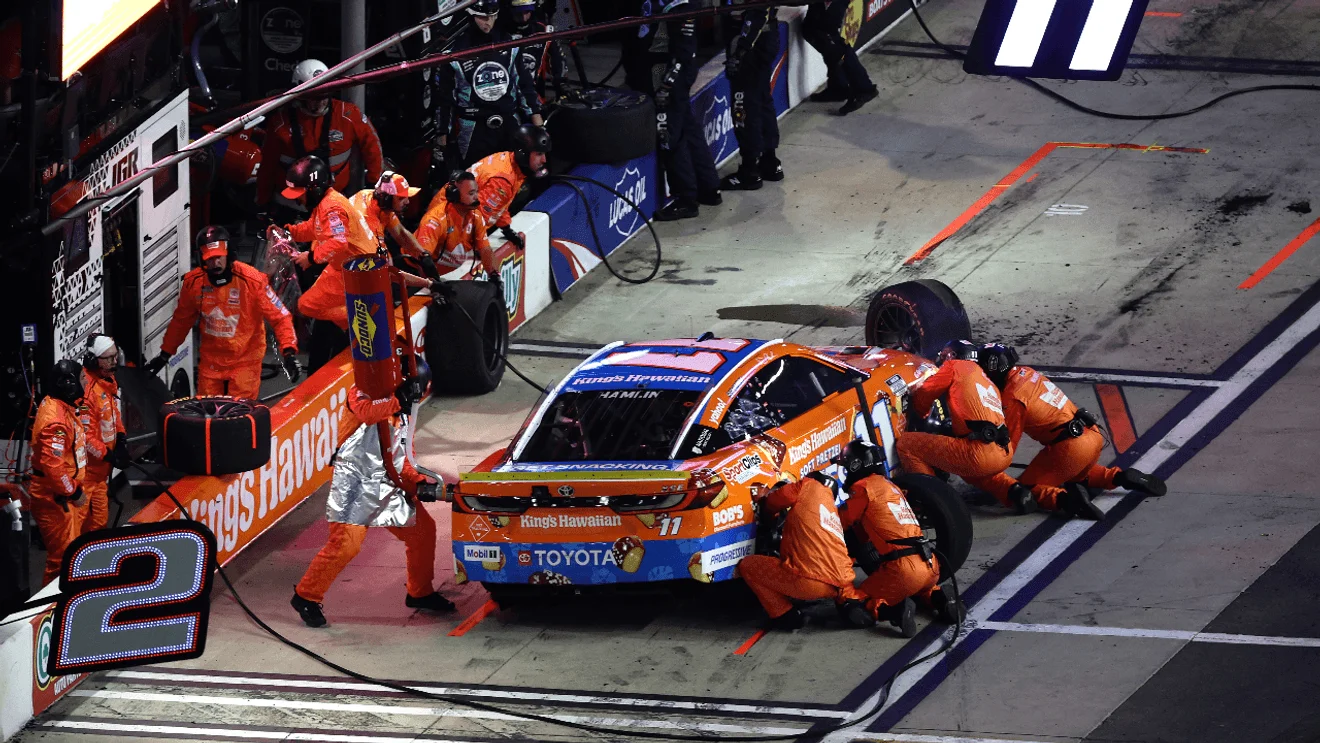Denny Hamlin has chosen to defer the suspension of two over-the-wall crew members after NASCAR penalized the Joe Gibbs Racing No. 11 team for a safety infraction, solidifying “Denny Hamlin pit crew suspension” as a key issue ahead of the upcoming races. The team will now serve the suspension during the events at Kansas Speedway and the Charlotte Motor Speedway ROVAL.
Details Surrounding the Suspension Decision
Hamlin will have to compete without Joel B Bouagnon and Austin Maloney, both sidelined after the right front wheel detached from the car during the recent Bristol Night Race. NASCAR enforces strict safety rules requiring teams to properly secure wheels to avoid them becoming hazards during competition. This policy led directly to the two-race suspension imposed on members of Hamlin’s pit crew.
NASCAR’s Rules Allow for Strategic Deferral
Under NASCAR’s regulations, teams can defer suspensions by up to a week. This flexibility lets teams adjust their lineup and helps prevent unnecessary appeals that would be quickly dismissed after a race weekend, minimizing process delays for all involved. The Joe Gibbs Racing No. 11 crew appears to have used this rule to their advantage, aiming to maximize their performance in the immediate playoff round.
Strategic Playoff Implications for Joe Gibbs Racing
As Hamlin’s team enters the first race of the NASCAR playoffs‘ second round, their strategy seems to focus on leveraging their strongest chance to advance, possibly securing a win or accumulating enough points to ease pressure in later races at Kansas and the ROVAL. Since road courses are historically Hamlin’s least successful venue type, the timing of the pit crew suspension minimizes its impact on their overall playoff campaign.
With key team members like Austin Maloney and Joel B Bouagnon unavailable, as well as the No. 11 crew seeking essential points in the playoffs, this situation places extra pressure on Denny Hamlin and Joe Gibbs Racing to adjust their tactics for upcoming race weekends. The outcome of these adjustments will likely influence their playoff journey and demonstrate NASCAR teams’ adaptability under tense circumstances.
